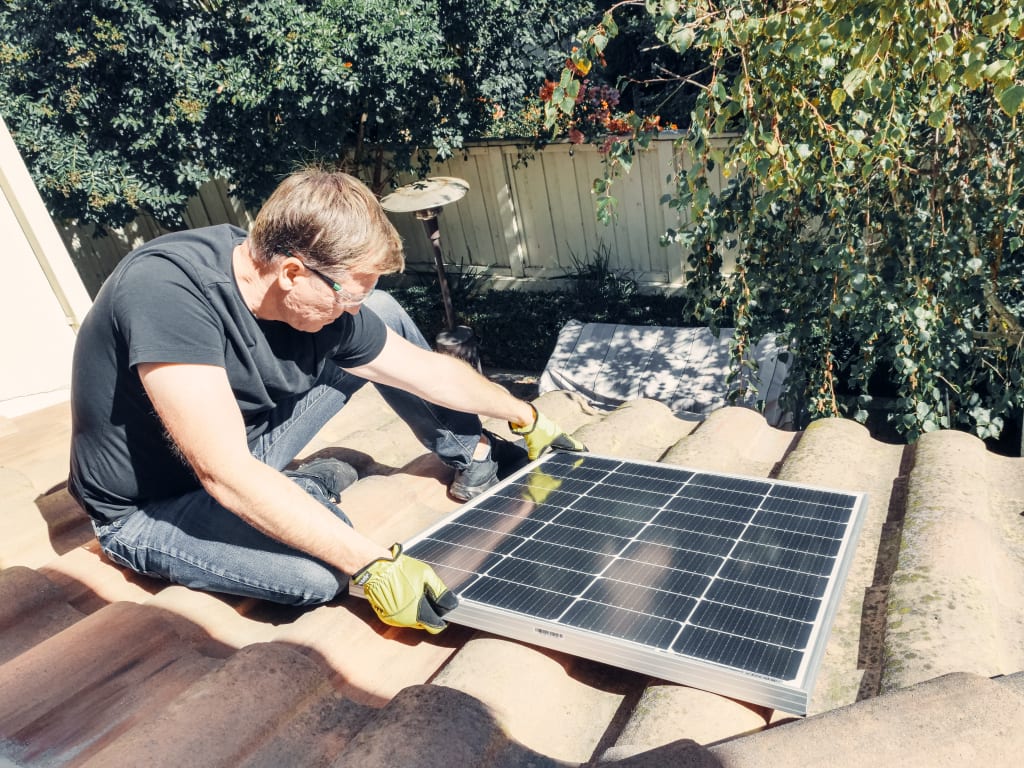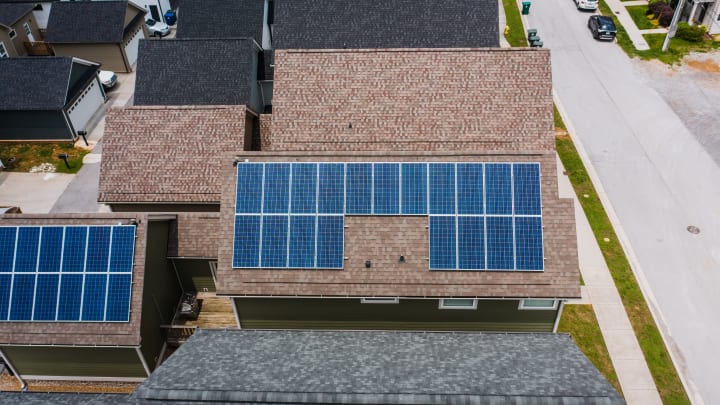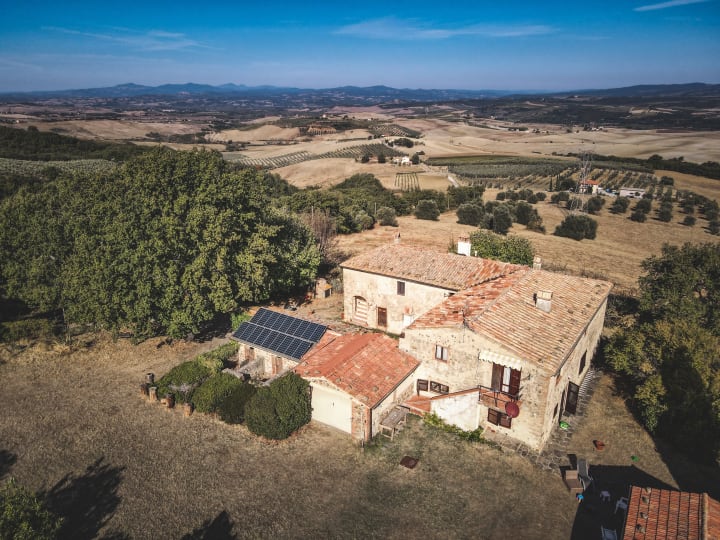1. Go Green and Save Money: Why You Need to Switch to Solar Energy Now
Clean Energy for a Sustainable Future: How Switching to Solar Energy Can Help Combat Climate Change and Ensure a Brighter Future for Generations to Come

As the world continues to face the consequences of climate change, more and more people are seeking ways to reduce their carbon footprint and contribute to a cleaner, greener planet. One effective way to do this is by switching to solar energy, a renewable and sustainable energy source that provides many benefits for both the environment and the economy. In recent years, the cost of solar technology has decreased significantly, making it more accessible and affordable for households of all sizes. Whether you are motivated by environmental concerns, financial savings, or a desire for energy independence, switching to solar energy is an excellent way to reduce your dependence on fossil fuels and make a positive impact on the planet. This article will explore the benefits of solar energy, the different types of solar systems available, and the factors to consider when switching to solar energy.
Get Your Video Guide On How To Build A Smart Solar Tower HERE
Pros of Going Solar:
1. Environmentally Friendly - Solar power is a clean, renewable energy source that does not produce any harmful emissions. By installing solar panels on your home, you can significantly reduce your carbon footprint and contribute to a cleaner, greener planet. Solar power is one of the most effective ways to reduce greenhouse gas emissions and combat climate change.
2. Cost Savings - While the initial cost of installing solar panels can be high, over the long term, solar power can save you a significant amount of money. By generating your own electricity, you can reduce your reliance on the grid and avoid rising energy costs. Over time, the savings from solar power can add up to tens of thousands of dollars or more.
3. Government Incentives - Many governments offer incentives to encourage people to switch to solar power. These incentives can include tax credits, rebates, and other financial incentives that can help offset the cost of installation. In some cases, these incentives can cover a significant portion of the cost of installing solar panels, making it a more affordable option for many households.
4. Energy Independence - By generating your own electricity, you can become more energy independent and reduce your reliance on the grid. This can be especially beneficial in areas where power outages are common. With solar power, you can have a reliable source of electricity even during power outages, which can provide peace of mind and security for you and your family.
5. Increased Property Value - Solar panels can increase the value of your home, making it a more attractive option for potential buyers. A study by the National Renewable Energy Laboratory found that homes with solar panels sold for an average of 20% more than homes without solar panels.
Get Your Video Guide On How To Build A 3D Solar Panel System HERE
Cons of Going Solar:
1. High Initial Cost - The initial cost of installing solar panels can be high, which can be a barrier for many people. However, as the cost of solar technology continues to come down, it is becoming more affordable for many households. Additionally, the long-term cost savings from solar power can offset the initial cost of installation.
2. Weather Dependence - Solar panels rely on sunlight to generate electricity, which means they are weather-dependent. On cloudy days or in areas with little sunlight, solar panels may not generate as much electricity as they would on sunny days. However, advances in technology have made it possible for solar panels to generate electricity even in low-light conditions, making it a more reliable source of electricity.
3. Space Requirements - Solar panels require a significant amount of space to be installed, which can be a challenge for some homeowners. However, advances in technology have made it possible to install solar panels on smaller roofs or even on the sides of buildings. Additionally, there are a variety of mounting options available to make the most of the available space.
4. Maintenance - While solar panels require little maintenance, they do require regular cleaning to ensure that they are generating electricity efficiently. In addition, some components of the solar system may need to be replaced over time, which can add to the overall cost. However, the maintenance required for solar panels is minimal compared to other home systems.
Why Now is a Great Time to Switch to Solar:

1. Cost Reduction - The cost of solar technology has been steadily decreasing over the past few years, making it more affordable than ever before. The cost of solar panels has dropped by more than 70% in the past decade, making it a more cost-effective option for many households.
2. Government Incentives - Many governments offer financial incentives to encourage people to switch to solar power, making it even more affordable for homeowners. These incentives can include tax credits, rebates, and other financial incentives that can significantly reduce the cost of installation. In some cases, these incentives can cover up to 30% or more of the cost of installation, making it a more accessible option for many households.
3. Increased Awareness - As more people become aware of the benefits of solar power, there is a growing demand for this technology, which is driving innovation and reducing costs. As the demand for solar panels increases, manufacturers are investing in research and development to improve the efficiency and performance of solar panels, which is driving down costs.
4. Energy Independence - With the increasing frequency of power outages, many homeowners are looking for ways to become more energy independent. Solar power provides a reliable source of electricity that can help ensure that your home has power even during blackouts. By installing a battery backup system, you can store excess electricity generated by your solar panels to use during power outages or at night.
5. Increased Resilience - Solar power can increase the resilience of your home in the face of natural disasters, such as hurricanes, tornadoes, or earthquakes. Unlike traditional power sources that rely on large, centralized power plants, solar power is distributed and decentralized, making it less vulnerable to disruptions caused by natural disasters.

While there are some challenges to going solar, the benefits far outweigh the drawbacks. With the cost of solar technology continuing to decrease, government incentives making it more affordable, and increased awareness of the benefits of solar power, there has never been a better time to switch to solar. By making the switch, you can reduce your carbon footprint, save money, increase your energy independence, and contribute to a cleaner, greener planet.
Get Your Video Guide On How To Build A Smart Solar Tower HERE
AFFILIATE DISCLOSURE: This article contains affiliate links, which means that if you click on one of the product links, I may receive a small commission for each sale. I will never knowingly put anything here that I haven't verified and/or personally used myself.
About the Creator
Jim Cupp
I am a retired master carpenter and furniture craftsman. I started Sonora Desert Media in 2020 as an online lead generation company, it has ballooned into numerous passive income streams for my great grand-children's futures.






Comments
There are no comments for this story
Be the first to respond and start the conversation.